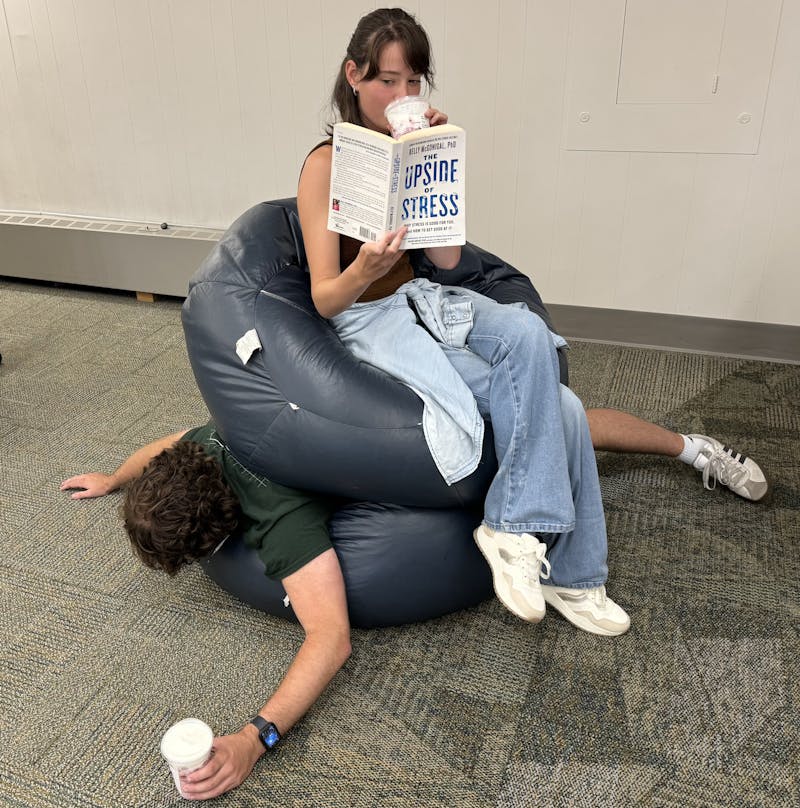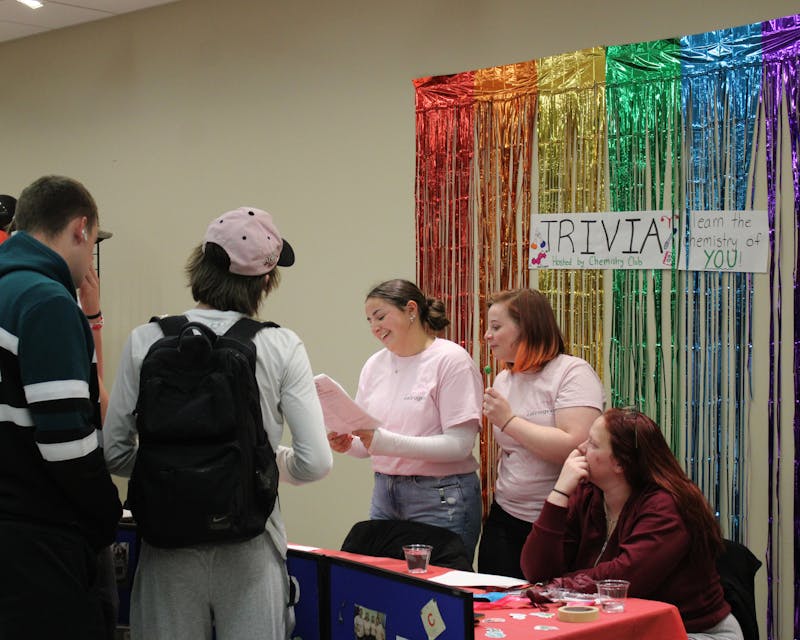Most Shippensburg University students are only responsible for themselves. However, resident assistants at SU are responsible themselves and at least 50 others.
There are approximately 2,300 students living in residence halls at Shippensburg University, according to Bill Yost, associate director of housing.
Junior English major Laura Kownacki is a resident assistant who is responsible for 52 of them.
Kownacki, one of 54 RAs on campus, said a difficult part of her job is distinguishing her actual role from the one her residents view her in.
“First and foremost, I think my residents view me as a person who’s on their side, which I am, but I don’t think my residents see me as a disciplinarian, which I sometimes have to be,” Kownacki said. “I don’t think it’s always expressly understood by the residents that my role is to be their friend and their resource and their counselor, but it’s also to do my job and play my part as the liaison between the students and the school.”
Jen Milburn, assistant director of resident life, said that the RAs are not there to police the halls, but to ensure a safe, quiet environment for students.
While part of an RA’s duty is to provide a safe home for residents, the RA also needs to ensure the students feel welcomed. RAs must serve as a resource, especially for new students, according to Milburn.
“I think through the RAs that they’re introduced to, students are able to get answers to those questions that would otherwise leave them frustrated. I think when a student has those answers; they’re more comfortable. They’re more confident. They’re more likely to stay here,” Milburn said.
“In general, the reason why we have so many in the halls is to make sure students feel supported and feel like they have a resource that understands what they’re going through,” Milburn said.
RAs are in charge of planning social and educational programs throughout the school year.
“The purpose of the programs is to build the community, which means letting people get to know each other and interact in a social setting and making sure everyone knows and respects who lives here,” Kownacki said.
To fund these programs, each RA gets a budget of $130 for the semester, according to Kownacki.
For door decorations and posters, RAs have access to a resource room in the basement of McClean Hall. The room has poster board, cardboard, die cuts and other materials free for the RAs.
According to Kownacki, programming and door decorations are two ways for RAs to work toward the 50 points they need to earn every semester. In this point system, starting an in-hall program for residents earns an RA five points. Eating with residents or inviting a guest speaker earns the RA four points.
RAs reap the benefits from the work they do throughout the semester. In addition to earning approximately $5,000 per year, receiving a single room for the price of a double and earning a free meal plan after their second year on the job, RAs learn a variety of skills that will help them in future career searches.
According to past RA testimonials, RAs graduate school with a multitude of transferable skills. They can carry their communication, problem-solving and interpersonal skills into any career field.
RAs have a long list of duties and responsibilities. They are expected to be able to work well in a group and independently. The ability to build a community and make connections with students are other important qualities, Milburn said.
The application process is another way anyone who applies to become an RA can gain relevant career experience. The Residence Hall Association has updated its application process in order to make it relevant to real world job searches.
“In the past it’s been an application where we ask you a few questions about community and why you want to be an RA and things like that and then you do some references. We realized that in the real world, that’s not how you apply for jobs,” Milburn said.
Teaming up with the Career Development Center, the Residence Hall Association now requires potential RAs to provide a resume and cover letter in addition to their application and references.
“It’s not about tricking them, it’s not about it being hard — we want to prepare everyone applying as best as we possibly can,” Milburn said.
In looking for potential RAs, Milburn said she is looking for personal qualities that cannot be taught.
“I can teach someone how to take notes in a meeting, I can teach someone how to confront an alcohol incident, I can teach someone how to write a judicial report. I can’t teach someone how to take feedback well, how to be kind and be personable, to have a sense of humor, to build relationships and be the kind of person to build rapport with students,” Milburn said.
For more information about becoming an RA, visit the Residence Hall Association’s “Be an RA” webpage.




The Slate welcomes thoughtful discussion on all of our stories, but please keep comments civil and on-topic. Read our full guidelines here.